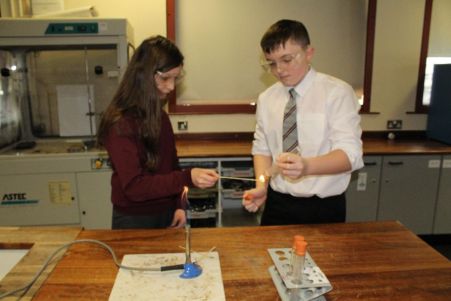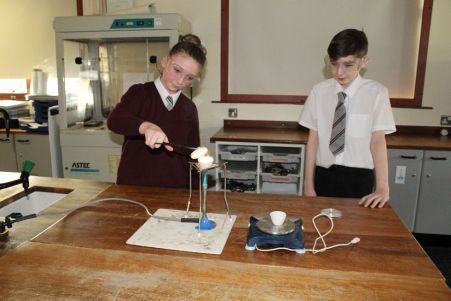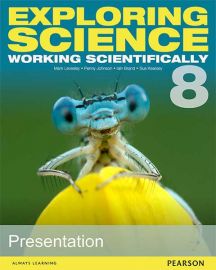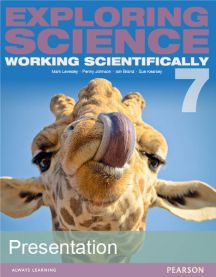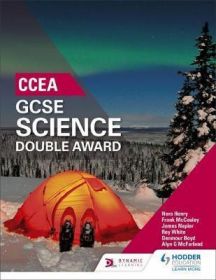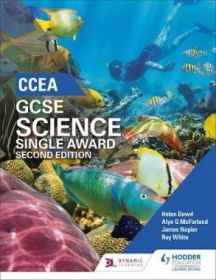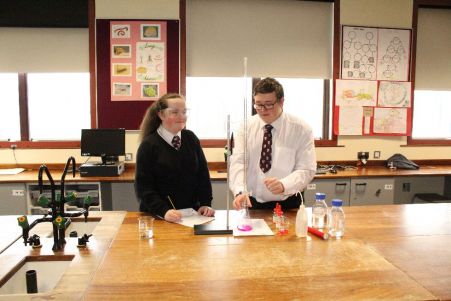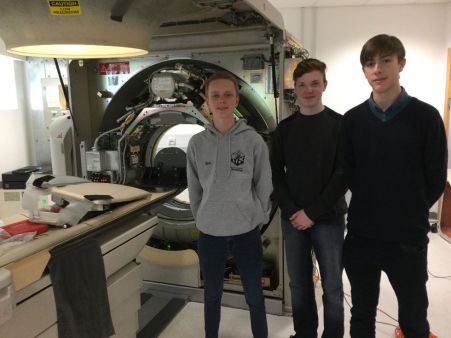Resources
Each pupils has a copy of our text Exploring Science saved to their iPad
|
Topics in Year 8 |
Topics in Year 9 |
Topics in Year 10 |
|
Exploring science 7 |
Exploring science 7 |
Exploring science 8 |
|
Cells, tissues and organs |
The Particle model |
Food and nutrition |
|
Mixtures and separation |
Current electricity |
The Periodic table |
|
Energy |
Muscles and bones |
Fluids |
|
Sexual reproduction in animals |
Atoms, elements and molecules |
Breathing and Respiration |
|
Acids and alkalis |
Forces |
Metals and their uses |
|
Current electricity |
Ecosystems |
Light |
|
Unicellular organisms |
||
|
Rocks |
||
|
Energy transfers |
GCSE Science
All Year 11 pupils study science to GCSE or equivalent. Science Single Award or Double Award is chosen depending on interest and ability.
- Double Award students will have performed very well in science assessments up to the end of Key Stage 3. They want to gain two GCSEs (covering topics in Biology, Chemistry and Physics) and they may well want to study subjects at Post-16 and beyond which have a significant science content. We follow the CCEA DA Science Specification.
- Single Award students will gain a sound understanding of topics in Biology, Chemistry and Physics but in less depth than Double Award. We follow the CCEA SA Science Specification.
- Horticulture is an alternative pathway offered to those students who wish to follow a vocational route equivalent to one GCSE. We follow the Pearson BTEC L2 in Horticulture QCF.
Resources
Pupils have access to dedicated textbooks for CCEA Single and Double Award Science
Post-16 Science
We offer CCEA Life and Health Sciences as a Single or Double Award GCE. We can also offer BTEC Level 3 Certificate in Applied Science.
- Life and Health Sciences has been developed with key industry partners in Northern Ireland. It aims to equip learners for a wide range of STEM careers and higher education pathways. The qualification is available as Single and Double Award. Varied topics include Experimental Techniques, Medicine, Drugs and Clinical trials, Brain Science and Medical Physics.
- This Vocational course is designed for students interested in learning about the Science sector alongside other fields of study, with a view to progressing to a wide range of higher education courses, not necessarily in Applied Science. This is taken as part of a programme of study that includes other appropriate BTEC Nationals or A Levels such as PE or Health and Social Care.
"We are a caring and committed multi-faith school, confident in meeting the needs of every child."


52 Crossgar Road
Ballynahinch
Co Down
BT24 8XS

028 9756 2518


 Menu
Menu



